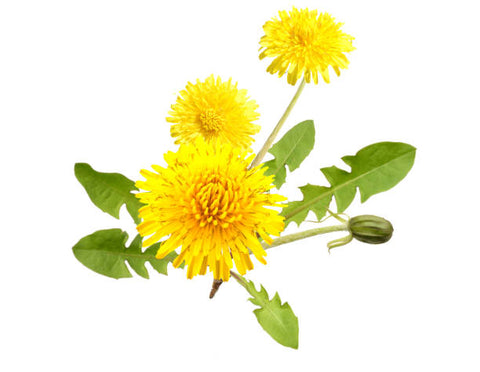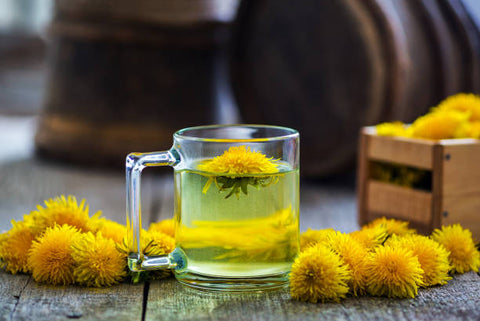Dandelion is a common flowering plant belonging to the Taraxacum genus, native to Europe and Asia but now found throughout the world. It's known for its bright yellow flowers and distinctive pinnate leaves, which are deeply toothed and give the plant its name (the French term "dent-de-lion" means "lion's tooth").
Key Information about Dandelion:

Botanical Classification: Dandelion belongs to the family Asteraceae and is scientifically known as Taraxacum officinale.Appearance: Dandelion is a herbaceous perennial plant with a rosette of leaves and yellow, composite flowers. After flowering, it forms white, fluffy seed heads known as "dandelion clocks" or "blowballs."
Culinary and Medicinal Uses: Dandelion has a long history of use in traditional herbal medicine and as a culinary ingredient. Various parts of the plant, including the leaves, roots, and flowers, are utilized.
Uses and Benefits:
Culinary Use: Dandelion leaves are often used in salads and can be cooked as a leafy green vegetable. They have a slightly bitter taste and are rich in vitamins (especially A and K) and minerals (such as iron and calcium).Herbal Remedies: Dandelion has been used in traditional medicine for various purposes. It is believed to have diuretic properties, which can help with water retention and mild high blood pressure. Dandelion root has been used to aid digestion and support liver health.
Nutrient-Rich: Dandelion greens are a good source of antioxidants, which can help combat oxidative stress in the body. They also contain fiber, which supports digestive health.
Teas and Supplements: Dandelion root and leaf extracts are available in the form of teas, tinctures, and supplements. These are used to harness the potential health benefits of the plant.
Potential Anti-Inflammatory Properties: Some research suggests that dandelion may have anti-inflammatory properties, which could be beneficial for conditions like arthritis.
Supporting Skin Health: Dandelion is sometimes used topically in creams or ointments to help soothe skin conditions like eczema and acne.
Cautions and Precautions:
While dandelion has many potential benefits, individuals should exercise caution when using it:
* Allergies: Some people may be allergic to dandelion and should avoid its use.* Pesticides: Dandelions that grow in lawns or gardens may be treated with pesticides or herbicides, making them unsafe for consumption.
* Medication Interactions: Dandelion supplements may interact with certain medications, so consult a healthcare provider before using them.
* Pregnancy and Lactation: Pregnant and breastfeeding women should exercise caution when using dandelion products.
Products that contains Dandelion -
In summary, dandelion is a versatile plant with a range of potential uses, from culinary to medicinal. While it has a history of traditional use, individuals should exercise caution, consult with a healthcare provider, and ensure they are sourcing dandelion from a safe and pesticide-free environment if they intend to use it for consumption or medicinal purposes.
Author: Nikita Vishnoi BCA











